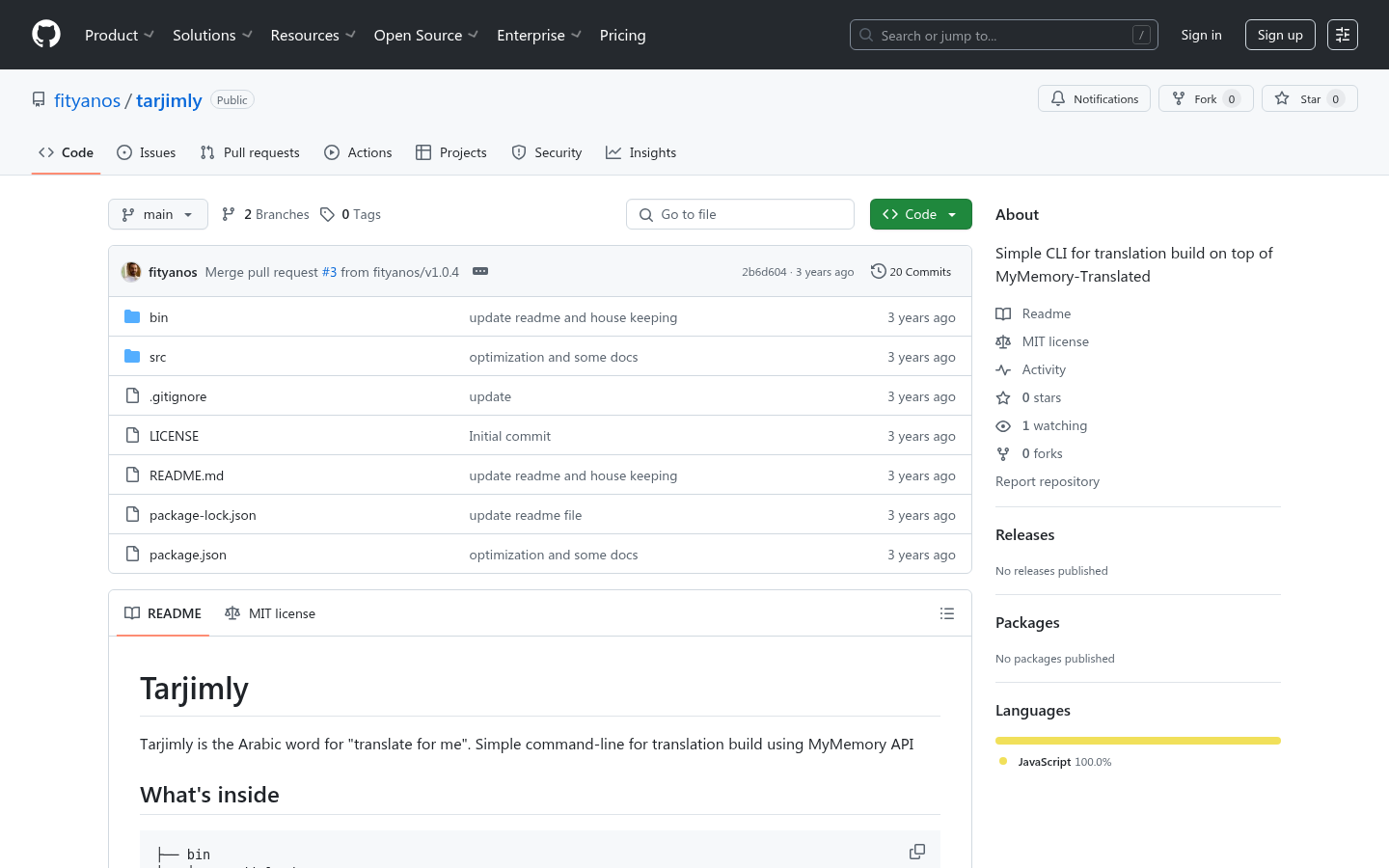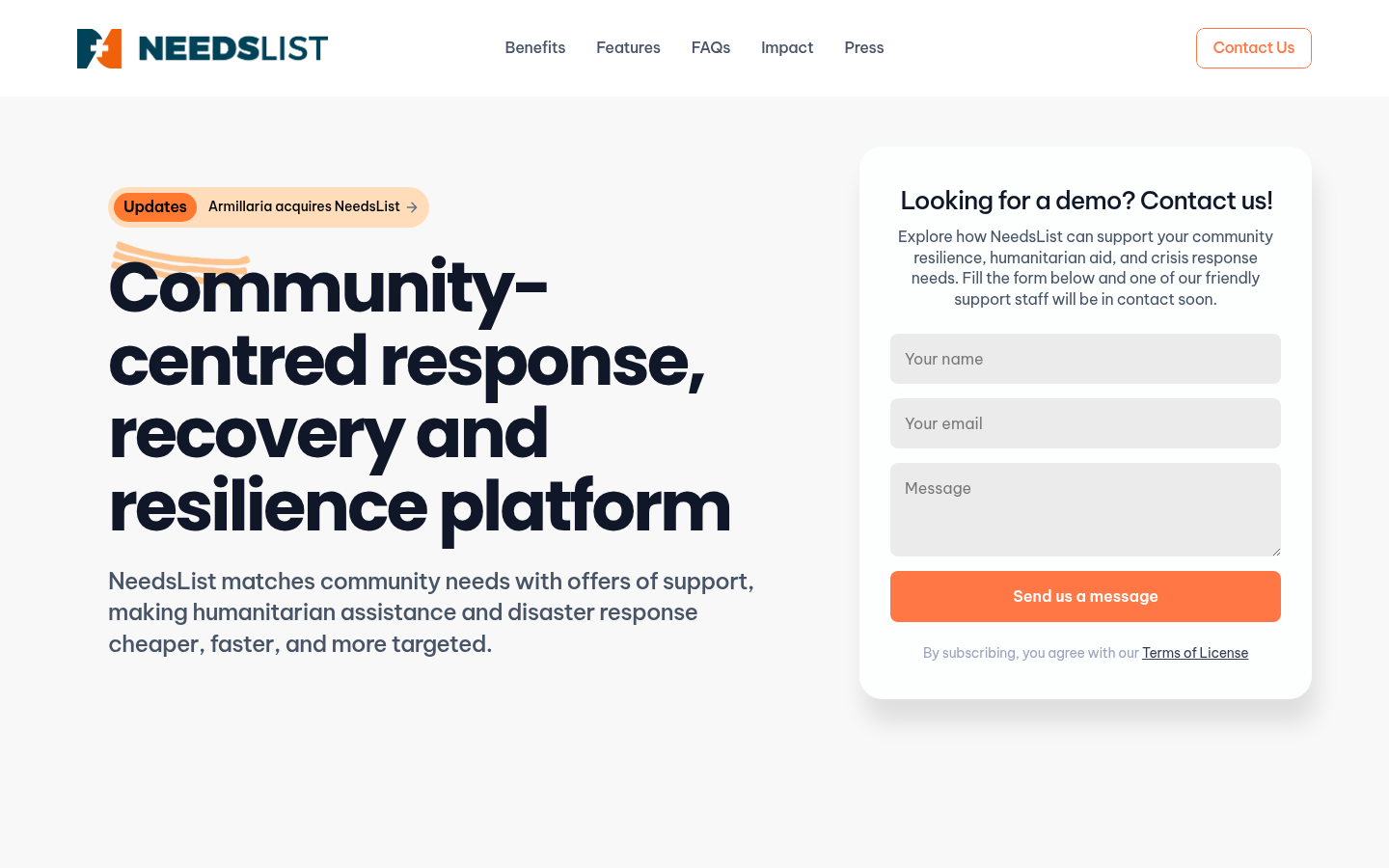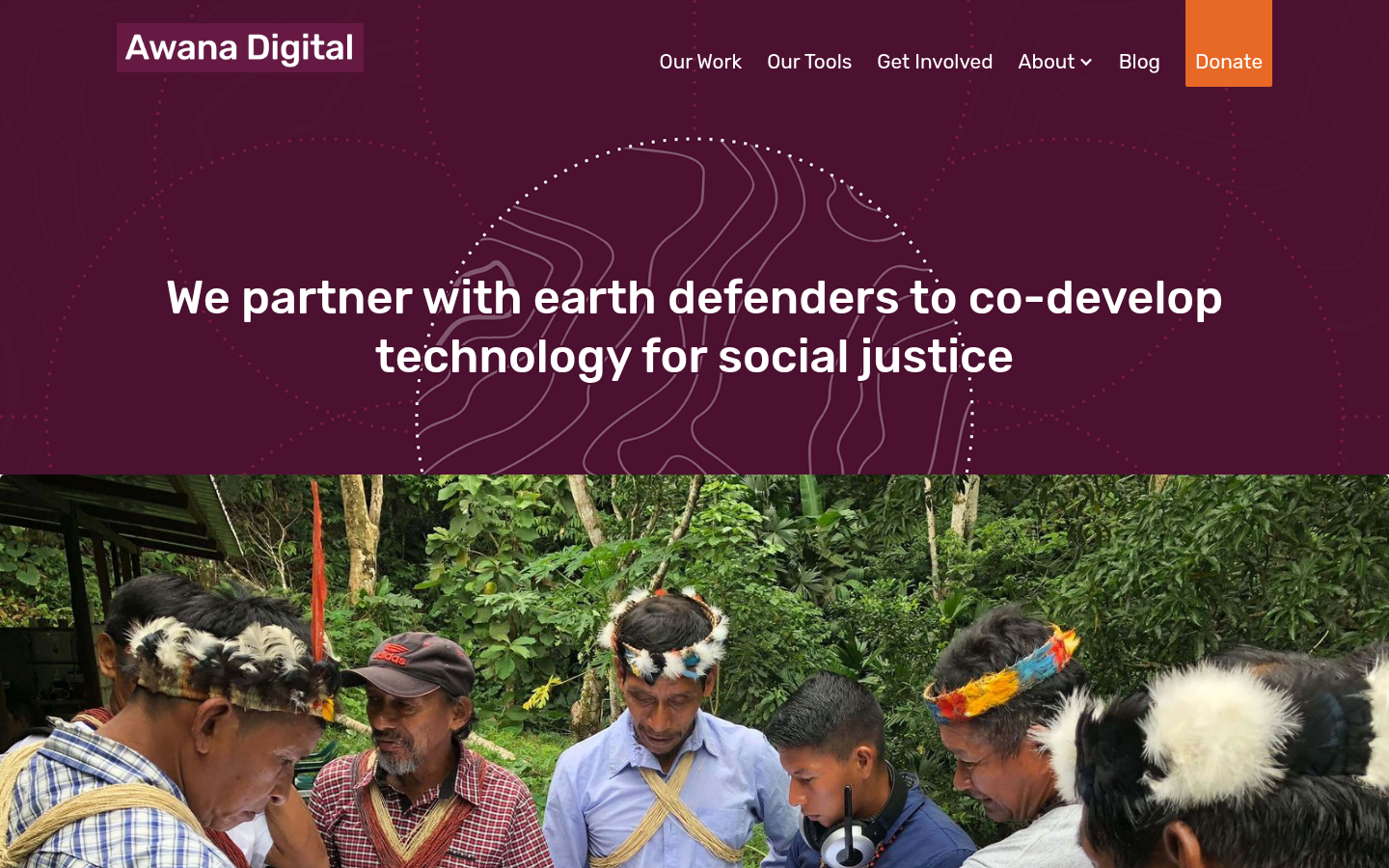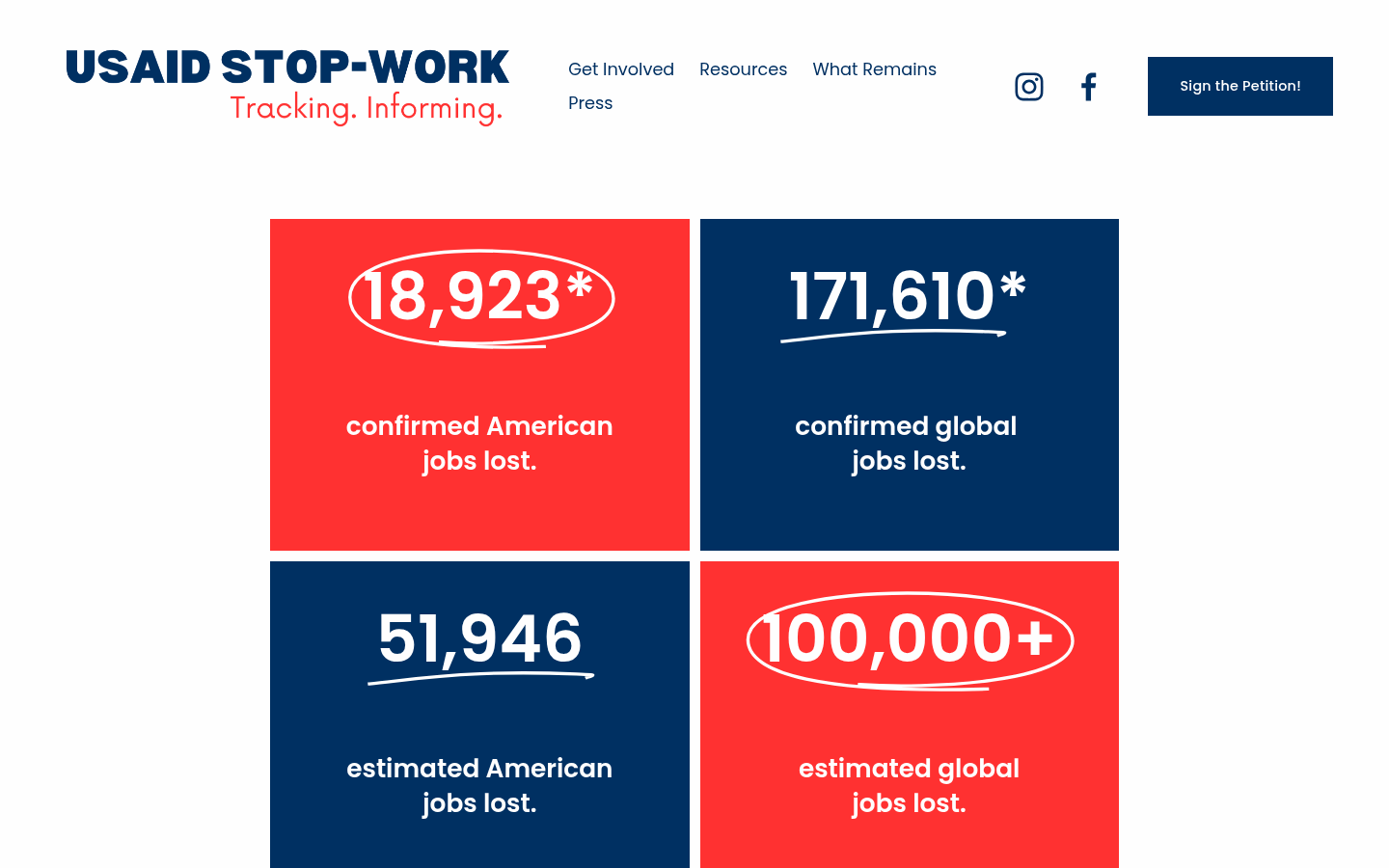Civic Tech Field Guide
Sharing knowledge and productively growing the fieldAdjacent Fields > Tech for public challenges > Disaster response and humanitarian tech - (161)
There's a long tradition of volunteer technologists rallying to aid communities in the aftermath of a disaster or humanitarian crisis. Many of the problems and solutions, such as managing skilled volunteers remotely, apply to other domains in the Civic Tech Field Guide. See also: Participatory Aid.
Showing 161 Results

Talent Beyond Boundaries (TBB)
United States of America (the)The organisation focuses on making skilled migration systems for refugees more accessible, and to create a world where displaced people can safely migrate for work, using their skills to rebuild their lives with dignity and purpose. It also collaborates with governments to achieve its purpose.

The Refugee Buddy Project
United Kingdom of Great Britain and Northern Ireland (the)A community group led by migrants and refugees formed in 2017, to provides support in the form of buddies, advocacy, financial and emotional support for refugees seeking safety in Scotland (specifically Hastings, Rother, and Wealden).

Refugee Phrasebook
European Union (EU)The Refugee Phrasebook is a multilingual tool that provides basic useful vocabulary related to the most common immediate needs. It is an open collaborative project that assembles important phrases from various fields, building a collection of useful words and phrases for refugees who just arrived.

Tarjimly
United States of America (the)A non-profit that seeks to eliminate humanitarian language barriers to improve the lives of refugees and immigrants. This service is built for people on the move and non-profit organisations.

NaTakallam
United States of America (the)NaTakallam leverages the freelance digital economy to provide income to refugees, displaced persons & their host community members, by hiring them as online tutors, teachers, translators & cultural exchange partners, regardless of their location & status.

Watch The Med
European Union (EU)Watch The Med is an online mapping platform to monitor the deaths and violations of migrants’ rights at the maritime borders of the EU. The WatchTheMed project was initiated as part of the 2012 Boats4People campaign in the Central Mediterranean. Today the project further involves a wide network of organisations, activists and researchers. Through the transnational cooperation with migrants’ rights organisations, activists, researchers, migrants, seafarers active in, around and beyond the Mediterranean and the use of new mapping technologies, WatchTheMed aims to document the deaths and violations that are the structural product of the militarized Southern European border regime. The online map allows to spatialise incidents across the complex legal and political geography of the Mediterranean Sea. Through the accounts of survivors and witnesses, but also the analysis of ocean currents, winds, mobile phone data and satellite imagery, it is possible to determine in which Search and Rescue zone, jurisdictions and operational areas an incident occurred – as well as showing other boats who were in the vicinity of those in distress. Spatialising such information is essential to determine responsibility for violations at sea. Apart from reconstructing past events, the participatory nature of the platform allows many different actors to to indicate ongoing situations of distress. The documentation generated by WatchTheMed seeks to support the work of organisations that defend migrants’ rights, inform migrants of their rights and security at sea, pressure authorities into respecting their obligations at sea, support the ongoing campaigns by the relatives of the dead and disappeared at sea, and support legal proceedings against those who violated the rights of migrants.

FindHello
United States of America (the)FindHello is an app built in partnership with the UNHCR by USAHello, a non-profit organization that uses technology to connect immigrant communities with the information and resources they need to thrive. It seeks to target refugees who migrate to the USA.

Paper Airplanes
United States of America (the)Paper Airplanes is a non-profit that seeks to prepare university students in conflict zones to be able to finish their university degrees through English language programs, among other initiatives.

Phone Credits for Refugees (PC4R)
United Kingdom of Great Britain and Northern Ireland (the)PC4R was set up in February 2016 by James Pearce as a way to provide phone credits to people in refugee camps.

Re:Match
European Union (EU)Developing and applying a preference-based algorithm that brings together welcoming cities and people seeking protection, Re:Match aims to bring just, sustainable and human-rights centered innovation to the field of migration governance.

Refugee Info
European Union (EU)Refugee Info is a European information service for refugees, migrants, and asylum-seekers.

Pontem Pro
European Union (EU)Pontem Pro closes learning gaps and makes the German education system more accessible, understandable and feasible for migrants - for better education, integration and career opportunities.

Fugees Family
United States of America (the)Fugees Family is a national nonprofit organization that partners with public school districts and communities to better serve refugee and immigrant students. Fugees is reimagining the ways educators connect with newcomer students

pardesi.org.np
South AsiaAn information portal for Nepalese migrants to bridge the gap in their access to information.

Techfugees
United Kingdom of Great Britain and Northern Ireland (the)Techfugees is an initiative that supports the deployment of responsible technology products and services for and with displaced persons across the world. It also enables the creation and application of tech-enabled solutions to manage migration.

Needslist
United States of America (the)NeedsList matches community needs with offers of support, making humanitarian assistance and disaster response cheaper, faster, and more targeted.

Contratados.org
Mexico City, CDMX, MexicoContratados.org allows workers to share their experiences and write reviews about their recruiters and employers in order to make the recruitment process transparent and generate a mechanism for accountability for compliance or non-compliance with the obligations of employers and/or recruiters.

GeoMatch
United States of America (the)GeoMatch works in many settings, from refugee resettlement to immigration agencies and nonprofits that help aspiring immigrants. They tailor the software to the client’s needs.

Awana Digital
United States of America (the)Digital Democracy’s mission is to work in solidarity with frontline and indigenous communities to use technology to defend their environmental and human rights. We partner with environmental defenders to co-design and co-develop tools they can use to defend critical ecosystems and Indigenous cultures. Digital Democracy helps our partners achieve transformative change and works toward a world where all people can participate in decisions that govern their lives.

Jangala
United Kingdom of Great Britain and Northern Ireland (the)Jangala is a technology charity dedicated to providing essential internet access globally, with the goal of connecting 4 million people to the internet by 2030. Founded in 2015 as a volunteer initiative providing Wi-Fi to 5,000 people in the Calais Jungle refugee camp, Jangala offers a unique approach through its novel connectivity solutions, and takes great pride in its strong partnerships with international aid actors, grassroots organisations and public bodies.

Berlin Mondiale
BerlinTo make arts and culture more visible and accessible to people in outskirt neighborhoods of Berlin, particularly those with migration, asylum, and exile histories.

Project Dastaan
United Kingdom of Great Britain and Northern Ireland (the)Project Dastaan is a peace-building initiative which examines the human impact of global migration through the lens of the largest forced migration in recorded history, the 1947 Partition of India and Pakistan.

Humanity Crew
European Union (EU)Humanity Crew is a non-profit organization dedicated to ensuring that communities affected by crises receive the critical mental health and psychosocial support they need.

Refugees Welcome International
European Union (EU)The Refugees Welcome International network is united by its shared mission to provide private accommodations for refugees all over the world, with the aims of fostering exchange between refugees and locals, combatting discrimination and prejudice, and supporting refugees and asylum seekers in the establishment of local social networks.

Children On The Edge
United Kingdom of Great Britain and Northern Ireland (the)Children on the Edge is a child rights organisation created to support the world’s most marginalised children, living in some of the toughest situations. We currently work with more than 20,000 children in Bangladesh, India, Uganda, Myanmar, and Lebanon.

Humans In The Loop
European Union (EU)Our goal is to provide digital work and training opportunities in some of the areas of the world which are hit hardest by armed conflict and forced displacement. We recognize the complexity of working in such fragile contexts and in order to navigate the challenges around employing and paying people in these locations, we partner with a network of established local organizations with a proven track record.

OCHA carried out two global survey to assess the consequences of the US funding freeze on humanitarian action globally. The first round, in February, looked at the impact of the suspension orders and waivers. The second was launched in March following the announcement of the US grants’ termination, in collaboration with IOM, UNHCR and ICVA.

Humanitarian Action provides a comprehensive overview of the humanitarian landscape by providing both an annual snapshot complemented by analysis, and live data on on humanitarian crises and response.

Engineers Without Borders International (EWB-I)
Boulder, COWe’re on a mission to mobilise a global network of engineers for good.

ProTECHtion: Digitally Powered Community Protection
Oslo, NorwayNorwegian Church Aid, with the support of Innovation Norway, is working on the design of a digital “meeting place” for communities at risk of violence to talk safely about needs, priorities, and aspirations.

Nexus Environment Assessment Tool (NEAT+)
Williamsburg, VARapid and simple project-level environmental screening for humanitarian operations


Data Entry and Exploration Platform (DEEP)
Williamsburg, VAA collaborative analysis platform for effective aid response

Gender-Based Violence Area of Responsibility
Geneva, SwitzerlandThe GBV AoR brings together non-governmental organisations, UN agencies, academics and others under the shared objective of ensuring life-saving, predictable, accountable and effective GBV prevention, risk mitigation and response in emergencies, both natural disaster and conflict-related humanitarian contexts.

IFRC GO
Williamsburg, VAIFRC GO aims to make all disaster information universally accessible and useful to IFRC responders for better decision making.

Internal Displacement Monitoring Centre (IDMC)
Williamsburg, VAThe world's leading source of data and analysis on internal displacement

Sahana makes high quality information management systems for emergency preparedness, response, recovery and resilience-building accessible to all.

GANNET
Williamsburg, VAGANNET is a Generative AI Initiative, offering AI-powered tools built to make knowledge and real-time information accessible to our community in a resource-efficient and ethical way.

Data Friendly Space (DFS)
Williamsburg, VAWe envision a future where technology and data power positive social change

USAID Stop-Work
Cincinnati, OhioTracking. Informing.

These are the results of a survey measuring the impact on organizations across the world affected by the US Government aid freeze.

Charities Affected by Freeze in Foreign Assistance Funding
United States of America (the)Charity Navigator's list of 3- and 4-star organizations whose programs may be affected by the Trump Administration's funding freeze.

Using publicly available satellite imagery and deep learning to understand economic well-being in Africa
Stanford University, Serra Mall, Stanford, CA, USAArticle in Nature by Christopher Yeh, Anthony Perez, Anne Driscoll, George Azzari, Zhongyi Tang, David Lobell, Stefano Ermon & Marshall Burke

CARE is a major international humanitarian agency delivering emergency relief and long-term international development projects. Founded in 1945, CARE is nonsectarian, impartial, and non-governmental. It is one of the largest and oldest humanitarian aid organizations focused on fighting global poverty.

Watch Duty
Santa Rosa, California, USAWatch Duty, a 501(c)(3) nonprofit, alerts you of nearby wildfires and firefighting efforts in real-time.

EGOV Repositories
Guimarães, PortugalDiscover the United Nations University EGOV's repository platform, a centralized hub of specialized repositories tackling global challenges.

Starlink cellular connectivity in disasters
Redmond, WASpace X's Starlink unit was granted permission by the US FCC to activate a satellite connectivity option for Americans in hurricane zones




